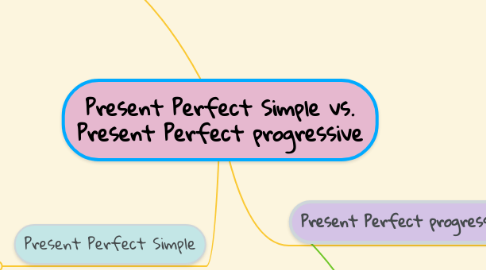Present Perfect Simple vs. Present Perfect progressive
создатель المتروك العسلي


1. Present Perfect Simple
1.1. For irregular verbs, use the participle form.
1.2. Already, ever, just, never, not yet, so far, till now, up to now
1.3. Examples:
1.3.1. She has read 30 pages.
1.3.2. He has played for three different teams.
1.3.3. How many pages have you read?
1.3.4. How many teams have you played for?
2. made by: Reem Hilal
3. Expresses an action that is still going on or that stopped recently, but has an influence on the present.
3.1. Puts emphasis on the result
3.2. Action that has taken place once, never or several times before the moment of speaking
3.3. Finished action that has an influence on the present
3.4. Action that stopped recently
3.5. Action that is still going on
3.6. Form
3.6.1. has/have + past participle
4. Present Perfect progressive
4.1. Show that something started in the past and has continued up until now.
4.2. Durations.
4.3. "For five minutes," "for two weeks," and "since Tuesday"
4.4. IMPORTANT
4.4.1. Remember that the Present Perfect progressive has the meaning of "lately" or "recently."
4.4.1.1. If you use the Present Perfect progressive in a question such as "Have you been feeling alright?", it can suggest that the person looks sick or unhealthy.
4.4.1.2. A question such as "Have you been smoking?" can suggest that you smell the smoke on the person.
4.4.1.3. Using this tense in a question suggests you can see, smell, hear or feel the results of the action.
4.4.1.4. It is possible to insult someone by using this tense incorrectly.

